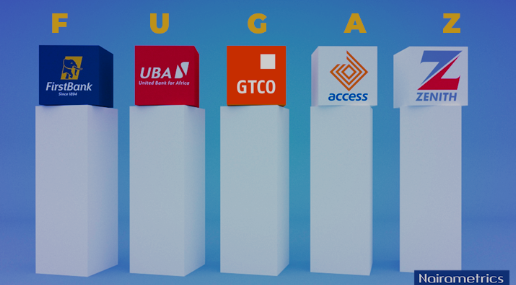
Investment banking is a critical component of the financial ecosystem, facilitating capital formation, mergers and acquisitions, and other financial services. In Nigeria, where the financial sector has witnessed significant growth and transformation, investment banking plays a pivotal role. This essay delves into the landscape of investment banking in Nigeria, exploring the key players, regulatory framework, challenges, and the overall impact on the country’s economy.
The Role of Investment Banking
A. Capital Formation
- Initial Public Offerings (IPOs): Investment banks assist companies in going public by underwriting and facilitating the issuance of shares.
- Private Placements: Facilitating the raising of capital through the private issuance of securities to institutional investors.
B. Mergers and Acquisitions (M&A)
- Advisory Services: Investment banks provide strategic advice to companies engaging in mergers, acquisitions, or divestitures.
- Valuation: Conducting thorough valuations to determine the fair value of companies involved in M&A transactions.
C. Asset Management
- Wealth Management: Offering tailored financial planning and investment solutions to high-net-worth individuals.
- Fund Management: Managing investment funds and portfolios on behalf of clients.
Key Players in the Nigerian Investment Banking Sector
A. Tier-1 Banks with Investment Banking Arms
- Access Bank: Through its subsidiary Access Bank Capital, the bank offers a range of investment banking services, including capital raising and financial advisory.
- Zenith Bank: Zenith Capital, the investment banking arm of Zenith Bank, is involved in capital market operations, financial advisory, and asset management.
- Guaranty Trust Bank (GTBank): GTBank offers investment banking services through its subsidiary, GTB Capital.
B. Specialized Investment Banks
- FBNQuest Merchant Bank: A subsidiary of First Bank of Nigeria, FBNQuest provides a comprehensive range of investment banking services, including advisory and asset management.
- United Capital Plc: Offering investment banking services, asset management, trusteeship, and securities trading.
- Stanbic IBTC Bank: The investment banking arm of Standard Bank Group, Stanbic IBTC, provides services such as capital raising, mergers, and acquisitions.
C. International Banks with Presence in Nigeria
- Citibank Nigeria: A branch of the global Citibank, offering investment banking services to corporate clients.
- Standard Chartered Bank Nigeria: Providing a suite of investment banking services, including advisory and capital market transactions.
D. Boutique and Independent Investment Banks
- Vetiva Capital Management: A leading indigenous investment bank, providing services in asset management, capital raising, and financial advisory.
- Meristem Securities: Offering investment advisory, wealth management, and capital market services.
Regulatory Environment
A. Securities and Exchange Commission (SEC)
- Regulatory Oversight: SEC oversees the capital market, ensuring compliance with regulations and protecting investors.
- Licensing: Investment banks must obtain licenses from SEC to operate in the Nigerian capital market.
B. Central Bank of Nigeria (CBN)
- Monetary Policy Oversight: CBN’s monetary policies impact the overall financial environment, influencing investment banking operations.
C. Financial Industry Regulatory Authority (FINRA)
- Self-Regulation: Some investment banks may be members of self-regulatory bodies like FINRA, adhering to industry standards.
Challenges in the Nigerian Investment Banking Sector
A. Economic Volatility
- Oil Price Dependency: The Nigerian economy’s reliance on oil revenues exposes the sector to fluctuations in global oil prices.
- Foreign Exchange Risk: Exchange rate volatility poses challenges for investment banks operating in a global market.
B. Regulatory Challenges
- Compliance Burden: Navigating complex and evolving regulatory requirements demands substantial resources.
- Market Illiquidity: Limited liquidity in the Nigerian capital market can impede the execution of transactions.
C. Infrastructure Deficiency
- Technological Gaps: Insufficient technological infrastructure may hinder the adoption of innovative financial solutions.
- Transportation and Logistics: Inadequate transportation infrastructure can impact the efficiency of investment banking operations.
Opportunities and Innovations
A. FinTech Integration
- Digital Banking: The integration of technology enhances financial services delivery and customer experience.
- Blockchain and Cryptocurrencies: Exploring blockchain technology and cryptocurrencies as new avenues for financial transactions.
B. Inclusive Finance
- Microfinance and SME Financing: Investment banks can play a role in supporting small and medium-sized enterprises (SMEs).
- Impact Investing: Investing in projects with a social or environmental impact for sustainable development.
C. Green Finance
- Renewable Energy Financing: Investment banks can participate in financing projects focused on renewable energy.
- Sustainable Bonds: Issuing bonds to finance environmentally friendly projects.
The Impact of Investment Banking on Nigeria’s Economy
A. Economic Growth
- Capital Mobilization: Investment banks contribute to mobilizing capital for economic activities and infrastructure development.
- Job Creation: The sector creates employment opportunities through various financial activities.
B. Market Development
- Development of the Capital Market: Investment banks contribute to the growth and development of the Nigerian capital market.
- Enhanced Financial Inclusion: Innovative financial solutions contribute to expanding financial access.
Future Trends and Prospects
A. Integration of ESG (Environmental, Social, Governance)
- Sustainable Finance: Increasing focus on financing projects that align with environmental and social sustainability.
- Corporate Governance Practices: Encouraging companies to adopt robust governance practices.
B. Global Integration
- International Partnerships: Collaborations with global investment banks and financial institutions.
- Cross-Border Investments: Facilitating cross-border investments and mergers.
C. Technological Advancements
- Artificial Intelligence (AI): Integration of AI in financial modeling, risk management, and customer service.
- Data Analytics: Utilizing big data for informed decision-making and risk assessment.
Conclusion
In conclusion, the landscape of investment banking in Nigeria is dynamic, evolving, and influenced by global and domestic factors. Key players, both local and international, contribute to economic development, job creation, and the growth of the capital market. Despite challenges, the sector presents numerous opportunities for innovation, inclusion, and sustainable finance. As Nigeria positions itself in the global financial arena, the role of investment banking becomes increasingly integral, shaping the nation’s economic future. Whether navigating economic uncertainties, embracing technological advancements, or championing sustainable practices, the journey of investment banking in Nigeria unfolds with the potential to redefine the financial landscape and contribute to the nation’s prosperity.





